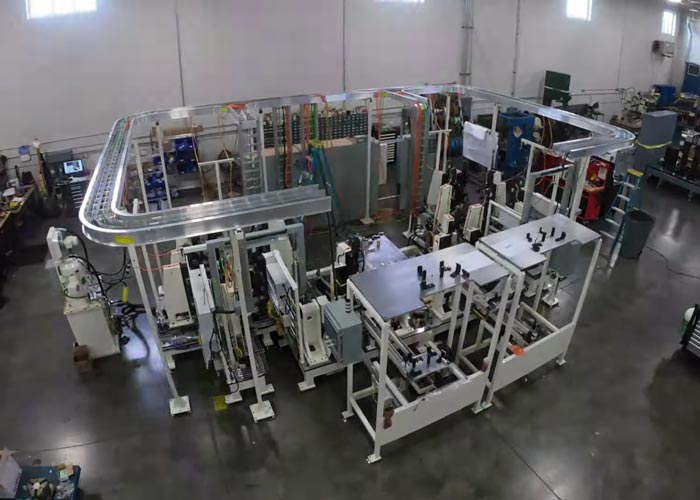 The eventual goal of automation is to create machines that can perform a wide variety of tasks, not just highly specific ones. As automation technology improves, we’ll likely see custom machines not only complete tasks, but also troubleshoot and repair themselves as the need arises.
The eventual goal of automation is to create machines that can perform a wide variety of tasks, not just highly specific ones. As automation technology improves, we’ll likely see custom machines not only complete tasks, but also troubleshoot and repair themselves as the need arises.
But what does this all mean for humans? What will our economy look like 10, 20, or 100 years from now? To find the answers to these questions, it helps to understand how our relationship with technology has evolved over time.
History Repeats Itself
In the early 19th century, English textile workers smashed mechanized looms and knitting frames during their five-year crusade against technology.
They called themselves the “Luddites” after a young apprentice named Ludd who supposedly destroyed a textile machine in 1779. Although “Ludd” was more myth than man. In fact, there’s no evidence he ever existed as more than a symbol for the Luddites and their labor movement.
What prompted the Luddite’s outrage? Good question. In those days, proprietors were increasingly using machines in their cotton and woolen mills. The Luddites were worried they’d lose their livelihoods to sophisticated technology and cheap unskilled labor.
Sound familiar?
That’s because it is. In fact, the unfolding drama of “man versus machine” has lasted for centuries—only the technology has changed.
Modern media loves to drum up fear of how robots will take over the world, starting with our jobs. Yet, you only have to look to history to see how human workers have adapted to waves of industrialization. has improved efficiency, quality, and safety. Furthermore, automation has freed workers from tedious jobs, allowing them the opportunity to retrain for better positions that make better use of their ingenuity.
Ingenuity that’s uniquely human.
The Next Industrial Wave
Think about the tasks required for your job. Simple tasks that you repeat over and over again are the most likely candidates for . However, tasks that are unique and/or complex will still need to be done by human workers.
Even companies that heavily use automation still employ workers to monitor, control, and maintain technology. In other words, they need humans to make sure everything runs smoothly. Companies that want to keep their employees can retrain them for other positions that require sophisticated thinking and complicated tasks that currently fall outside the scope of automation.
Maintaining the Balance Between Man and Machine
In the future, more Americans will work alongside industrial automation systems. As a result, there’ll be a need for managers to facilitate the relationship between people and machines. These managers will also be looking for ways to best combine the strengths of each respective group.
While automation systems are perfect for simple repetitive tasks, humans are still needed for anything that requires versatility, judgment, and empathy. Managers would make it easier for humans to interact with technology, ensuring that the relationship remains harmonious and productive for the good of the company.
Call Paramount Tool Company Today
Paramount Tool Company is an automation system builder in Holland, MI. As such, we understand that adopting or upgrading an automation system is an investment in your business. To request an estimate or learn more about our services, call (616) 582-5300.
 (616) 582-5300
(616) 582-5300

